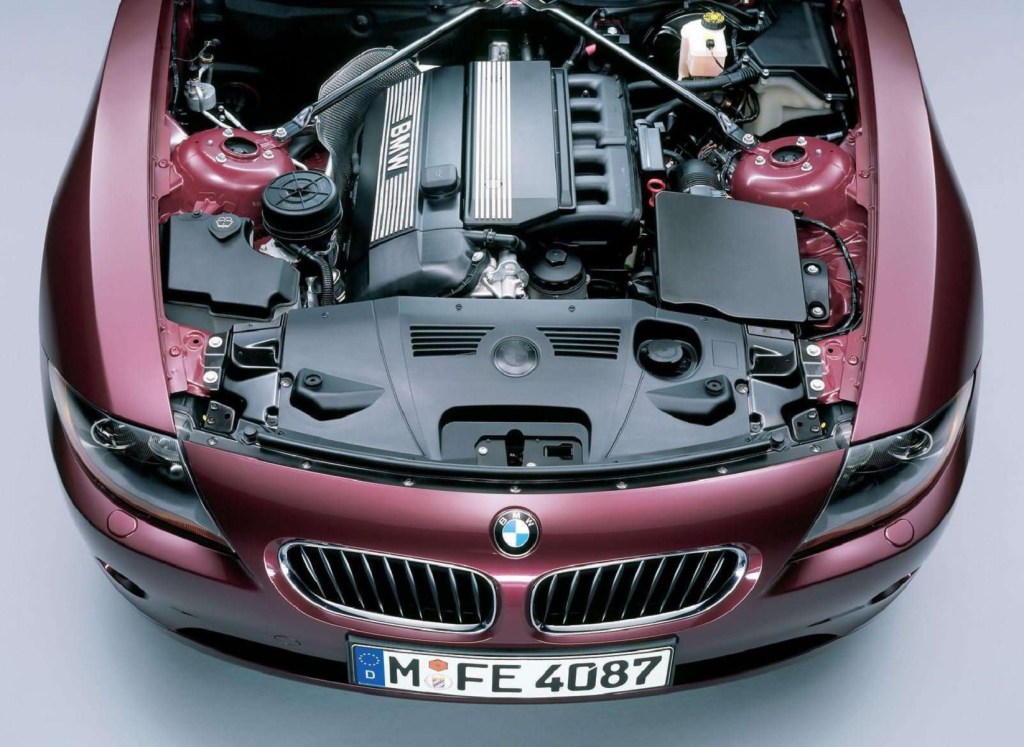Usual Concerns Faced by BMW Engine Owners and Exactly How to Solve Them
Usual Concerns Faced by BMW Engine Owners and Exactly How to Solve Them
Blog Article
Unveiling the Intricacies of Next-Generation Power Units: a Deep Dive Into Advanced Engine Developments and styles
As we stand on the precipice of a new period in transport, the details of next-generation engine designs bid us to discover the sophisticated innovations and technologies that promise to redefine the driving experience. Delving deeper into the realms of exhaust control, smart engine monitoring systems, and the horizon of power device growth, we discover ourselves on the cusp of a change that promises to reshape the landscape of movement as we recognize it.
Development of Engine Materials

The change in the direction of progressed engine materials has actually also allowed designers to develop engines with higher power outcomes while preserving gas performance standards. The use of light-weight materials minimizes the total weight of the engine, leading to enhanced gas economic climate and lower discharges. Furthermore, improvements in materials technology have enabled for far better thermal monitoring within engines, leading to boosted integrity and durability.
Turbocharging and Supercharging Technologies
Just How do Turbocharging and Supercharging Technologies reinvent engine efficiency and performance in modern automobiles? Supercharging and turbocharging are technologies that significantly enhance engine efficiency by increasing the amount of air intake into the combustion chamber. Turbocharging accomplishes this by using a turbine driven by exhaust gases to pressurize the intake air, while supercharging uses a belt- or chain-driven compressor to attain the exact same effect.
These technologies allow smaller sized, much more fuel-efficient engines to produce power comparable to larger ones, referred to as downsizing. By requiring even more air into the cylinders, turbocharging and supercharging improve combustion performance, leading to boosted horse power and torque output without a considerable increase in engine dimension. This brings about better acceleration, towing ability, and total driving performance.
Moreover, turbocharging and turbo charging add to improved gas efficiency by allowing the usage of smaller sized engines that eat much less fuel under normal driving problems - bmw engine. This combination of boosted efficiency and performance has made turbocharging and turbo charging integral elements of numerous modern-day engine layouts
Emission Control and Environmental Influence
With boosting worldwide problems regarding air high quality and environmental sustainability, the execution of emission control innovations in lorries plays an important duty in reducing hazardous toxins released right into the ambience. Modern cars are furnished with sophisticated discharge control systems that aid minimize the ecological effect of auto operations. Catalytic converters, for instance, are made to transform hazardous gases such as carbon you could try these out monoxide gas, nitrogen oxides, and hydrocarbons right into much less harmful substances like carbon dioxide and water vapor.
Additionally, advancements in engine innovation, such as the combination of exhaust gas recirculation systems and discerning catalytic decrease, have substantially added to lowering exhausts. These innovations function in tandem to maximize burning performance and decrease the release of damaging toxins into the air. In addition, the development of hybrid and electric lorries stands for a crucial action towards lowering the overall ecological impact of the transport sector.
Intelligent Engine Monitoring Solution

Furthermore, these systems make it possible for vehicles to fulfill stringent exhausts criteria without jeopardizing performance, supplying an extra eco-friendly driving experience. The combination of fabricated knowledge and artificial intelligence capacities in engine management systems continues to push the boundaries of what is feasible, bring about additional improvements in effectiveness, dependability, and general car performance. bmw engine. As automotive technology advances, intelligent engine management systems will certainly play an essential function in shaping the future of transport in the direction of an extra lasting and efficient instructions
Future Trends in Power System Advancement
As intelligent engine monitoring systems lead the method for boosted control and optimization in contemporary automobiles, future trends in power device development are positioned to redefine the landscape of automotive propulsion modern technologies. These alternate power resources supply enhanced performance and performance while aligning with strict environmental guidelines.
Another significant fad is the combination of advanced products and making methods. Light-weight products such as carbon fiber and light weight aluminum are being used to minimize overall car weight, boosting gas effectiveness and performance. Furthermore, innovations in 3D printing and additive production browse around this site are making it possible for the production of complex engine parts with higher precision and toughness.
Furthermore, fabricated intelligence and artificial intelligence are playing a crucial duty in optimizing power device efficiency. These technologies enable for real-time monitoring and adaptive control, resulting in extra reliable and dependable power delivery. Overall, future trends in power unit growth are geared in the direction of performance, sustainability, and performance, driving the automotive sector in the direction of a new era of propulsion technologies.

Conclusion
In conclusion, the innovations in engine materials, turbocharging, exhaust control, and smart management systems have led the way for next-generation power units. The detailed styles and innovations in modern-day engines display the ongoing evolution of automobile modern technology.
Exploring the dynamic improvements in engine products has been crucial in improving the efficiency and performance of modern engines. Over the years, the evolution of engine materials has played a crucial duty in pushing the boundaries of what engines can attain.The change in the direction of progressed engine products has actually additionally allowed engineers to create engines with greater power results while preserving gas performance standards.The execution of smart engine administration systems in modern-day lorries has transformed the means engines are controlled and optimized for performance and effectiveness. By collecting information in real-time and analyzing it with sophisticated formulas, smart engine monitoring systems can adjust to driving styles, ecological elements, and engine health and wellness to maximize power output while reducing gas usage and emissions.
Report this page